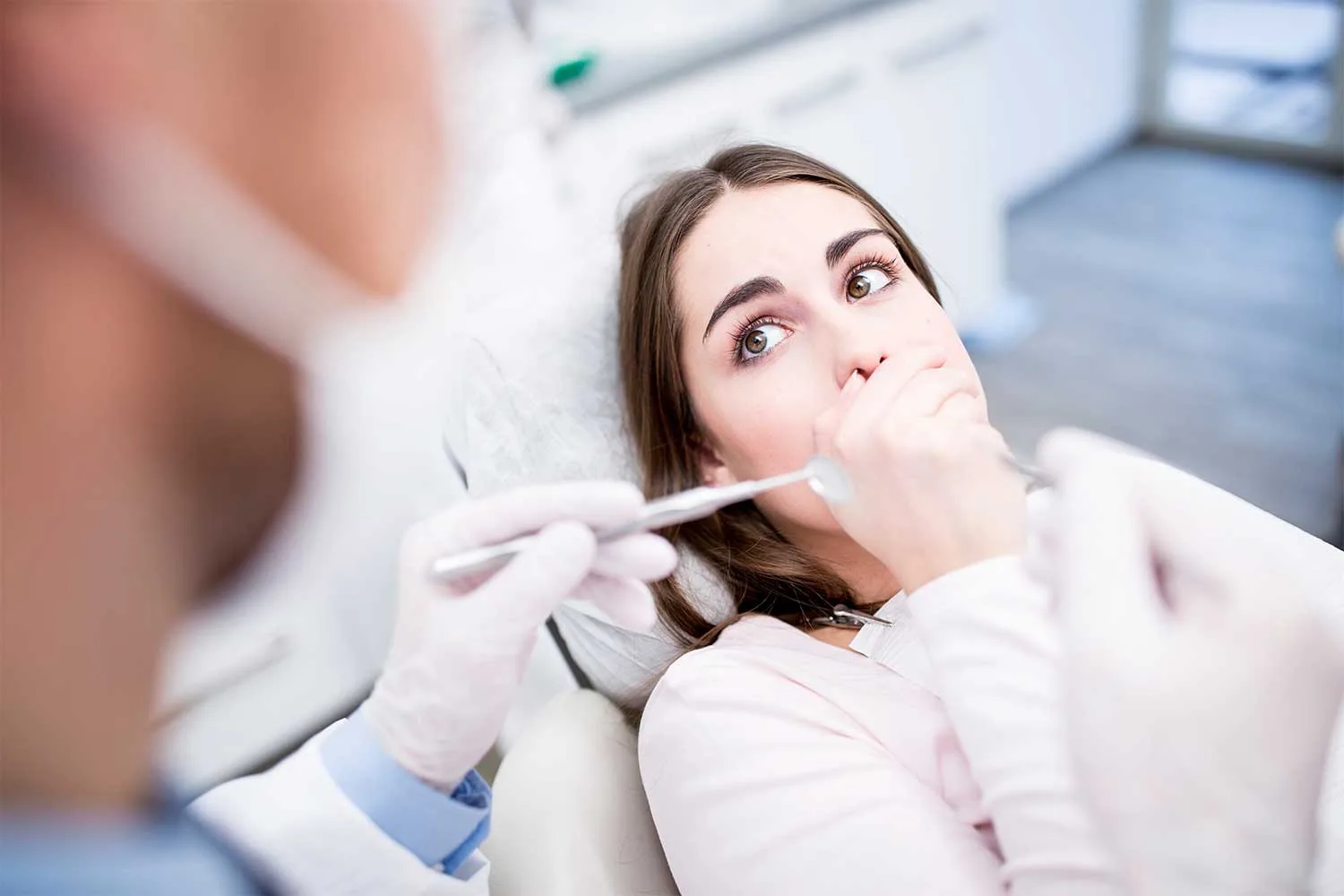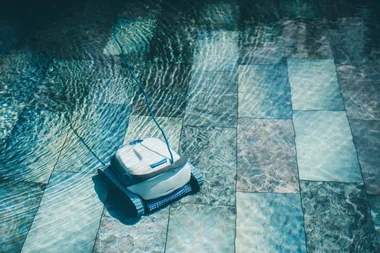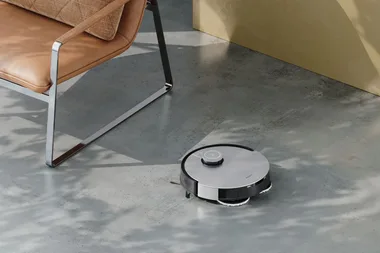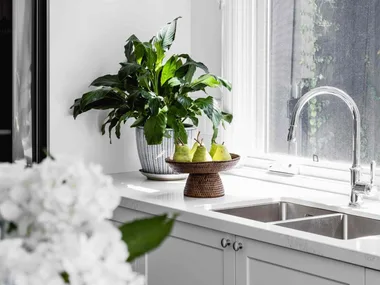Does a trip to the dentist send shivers down your spine? None of us love a trip to the dentist, however for one in six Australian adults, this reality is an overwhelming fear that can lead to health problems.
So what can you do about it?
Here, we talk to Tabitha Acret, dental hygienist at Airflow Dental Spa for her top tips and treatments for dealing with dental anxiety and phobia. With 22 years’ experience in the dental industry, she has a Bachelor of Oral Health and has worked in private practice and as a dental educator at Sydney University.
When does general fear of going to the dentist become dental phobia?
Many people have anxiety about visiting the dentist, but for some people this fear can evolve into a phobia. When the phobia becomes too overwhelming, they avoid visiting the dentist and seeking treatment all together. This behaviour can lead to poor oral health outcomes which have the potential to impact your overall wellness and cause greater complications in life.
It’s important for people who have a dental phobia to acknowledge these feelings and seek support so that you can make regular trips to the dentist and keep their oral health in check.

How can dental phobia be fixed?
Unfortunately, there’s no quick fix. It will depend on the root cause of this fear. A lot of cases suggest previous pain has been incurred while visiting the dentist or mistreatment from dental professionals themselves.
Ask yourself if you can you identify what it is you fear? Is it the smells, sounds, certain words, specific procedures, tastes or the overall experience? The best thing to do here is have an open conversation with your dental professional and let them know what your triggers are.
I suggest even ringing ahead and sharing this information so that the appointment is approached with your personal needs in mind. Furthermore, that first appointment could be a consult only so there is no added pressure of treatment and you can create a dental health care plan together while familiarising yourself with the surroundings.
For those who simply cannot set foot in the practice, then tele-dentistry services are a perfect solution, or stepping stone. This is a platform designed for online dental consults, a way to discuss your oral health needs and concerns from the comfort of your own home.

What techniques can help you stay calm in the chair?
- Bring your headphones along to the appointment and listen to music, a podcast, or even a meditation app to help you relax in the chair.
- Know that you’re in control and if at any time you need someone to stop so you can take a breath, do so. I always ask my patients to raise their hand when and if they would like me to stop. I remove whatever I am using immediately and take a moment to reconnect with the patient.
- Know that the dental professional providing care to you and your teeth wants to do everything they can to help make the experience as safe and gentle as possible.
- Bring someone you trust and who would be a great help at calming you and your thoughts during the appointment (please consider COVID-19 restrictions here). Sometimes a familiar face can make you feel safe and sound.
- If none of the above techniques work for you, speak to your general practitioner about seeing a psychologist for calming techniques and fear coaching. Additionally, you can consider the use of nitrous oxide (happy gas) during procedures. This requires permission from your dental professional should it be a suitable option. Some nervous patients take this approach.

Are there any dental treatments that can help make you feel more comfortable?
Start with a consult first to establish what it is you need by way of dental care.
With the introduction of new technologies, dentistry has been rapidly changing and improving to better suit the patient and prioritise their comfort. You can now experience your professional clean using the Airflow Dental Spa technology which is akin to an exfoliating treatment but for your teeth!
In layman’s terms, it is a combination of warm water and sweet-tasting powder that will wash the teeth using air pressure to reduce the need for invasive tools (no more scraping or fingernails-on-a-chalkboard-type noises).
This is a new approach to preventative dental care that with minimal intervention techniques offers an improved patient experience.

What about kids? What techniques can help them?
Kids are often nervous because of the unknown. They may have never visited a dentist before and they’re meeting new adults and being introduced to new smells and sounds. I strongly recommend that if you can pre-visit the dentist, then do so. Show them the waiting room and meet some of the front desk staff so next time there is less of a surprise.
Read age-appropriate books or watch cartoons on the topic of dentistry creating positive associations with the word. Many parents tend to take the approach of “if you don’t brush your teeth you will need to get a filling and it will hurt”. Now while the statement itself is somewhat correct and the intent behind avoiding dental treatment is right, this often sets the tone that all visits to the dentist will be painful and scary.
It’s better to talk about teeth getting ‘sick’ and visiting the dentist is how we can make them healthy again. If you talk about the preventative care appointments as a fun and a new experience, a big moving chair like a Transformer while your teeth get a wash, you are establishing a far more positive connection.
It also helps to start early. If your kids can and do come along to appointments with a parent who does not express fear or concern at the dentist, this is a really positive influence for them. Many of my patients who are children run into the room and fight for who gets to be seen first. If you can get the youngest ones in the chair even to count their teeth and have them open wide, you can very naturally progress to the next stages of treatment as they grow older.
Is there anything people can do at home to prepare for the dentist?
Make sure you eat before you attend. Skipping meals because you are nervous will only make you feel light headed and compound any negative feelings.
Discuss your concerns with the dental practice over the phone prior and let them know you are nervous about attending, maybe share what your triggers are so the dentist can prepare accordingly.
Finally, book your appointment for first thing in the morning, otherwise you will continue to dwell on it for the whole day and let the anxious feelings build.
You might also like:
How often should you change your tooth brush?
6 foods that can make your teeth whiter
Is an electric toothbrush good for your teeth?










